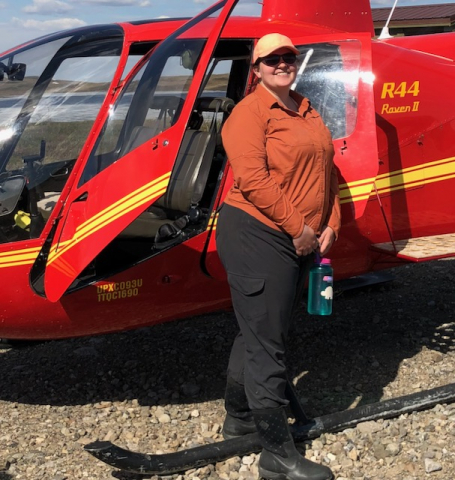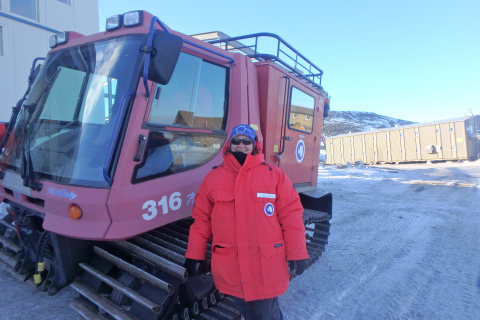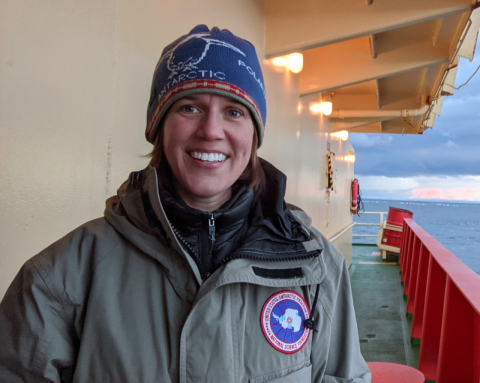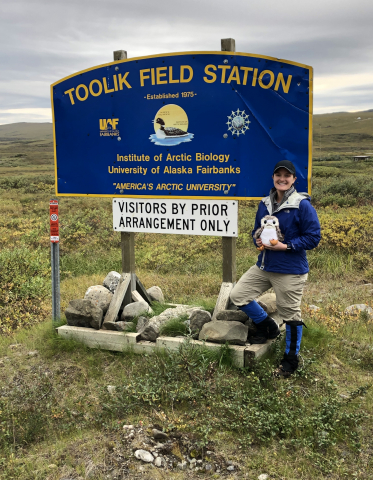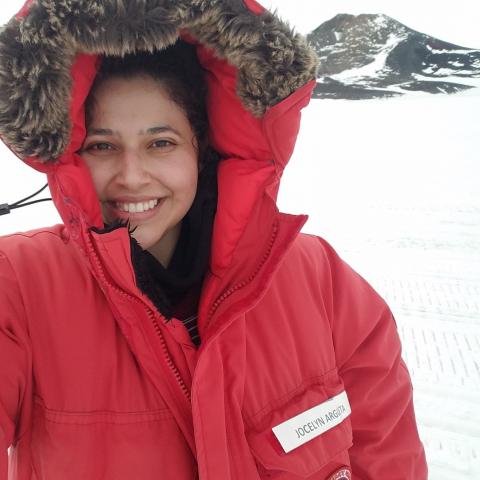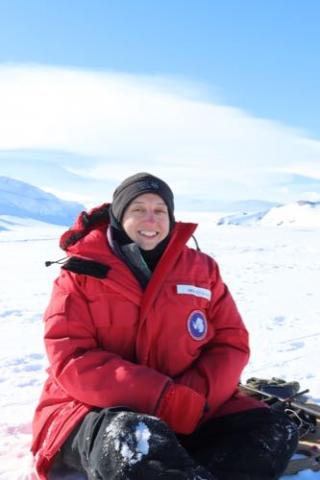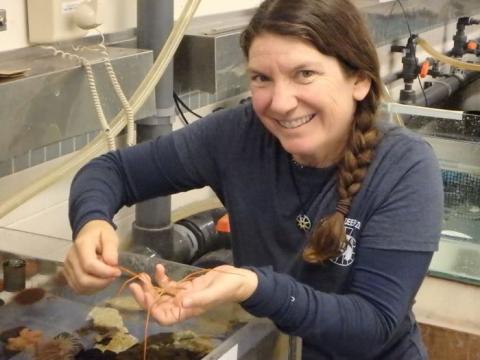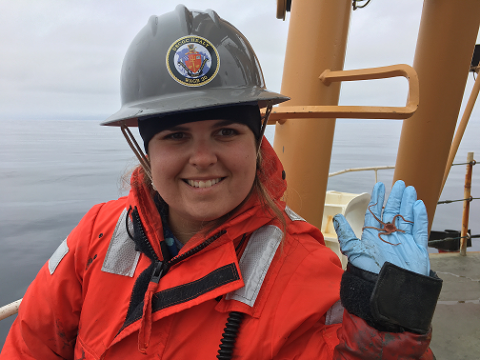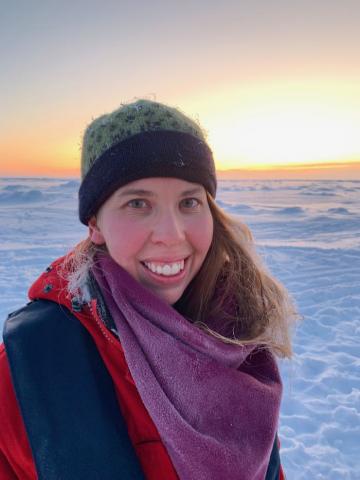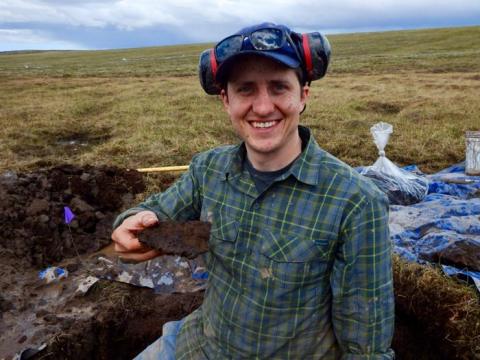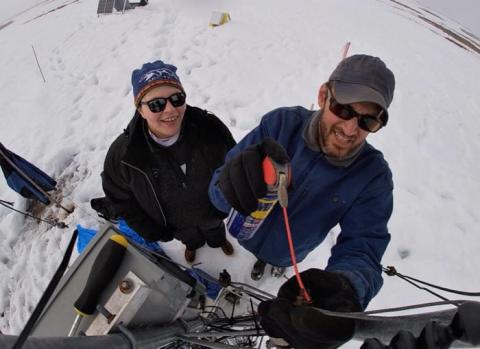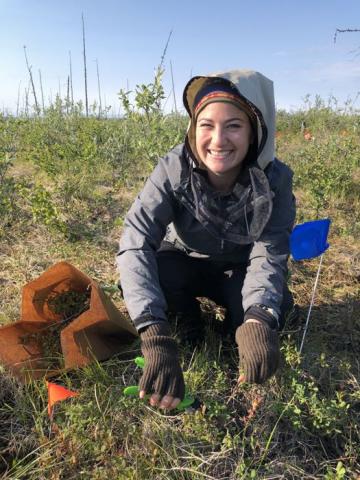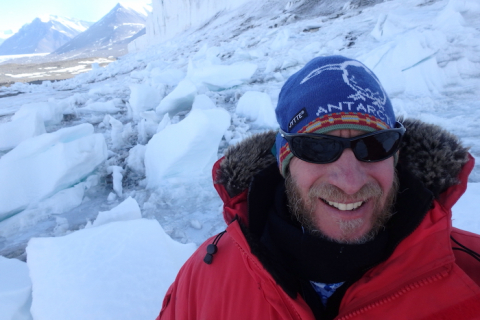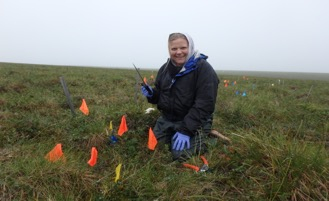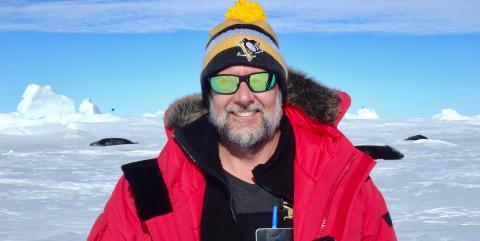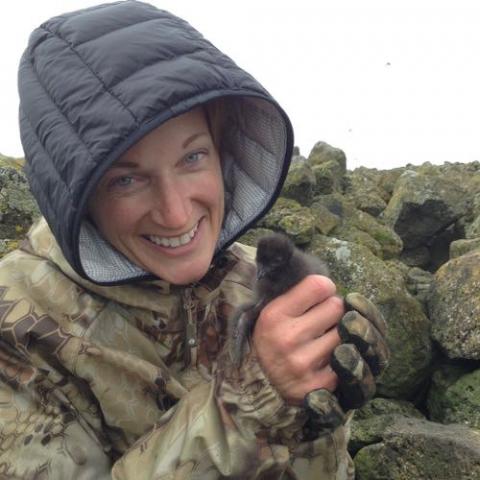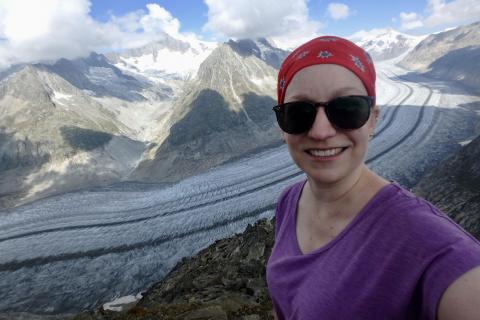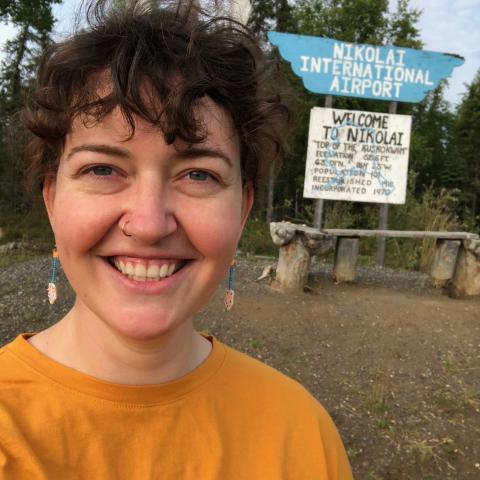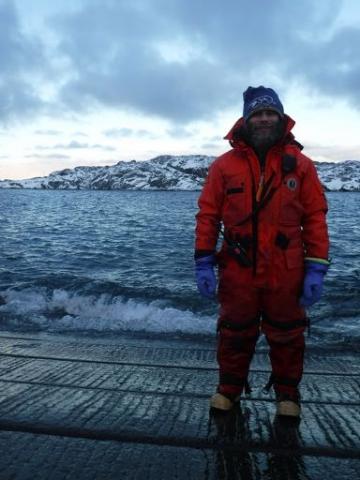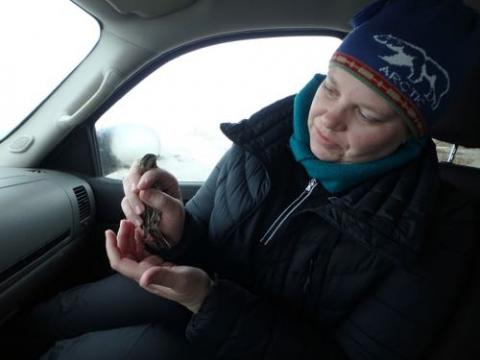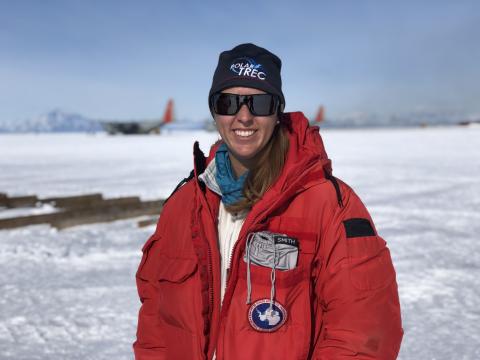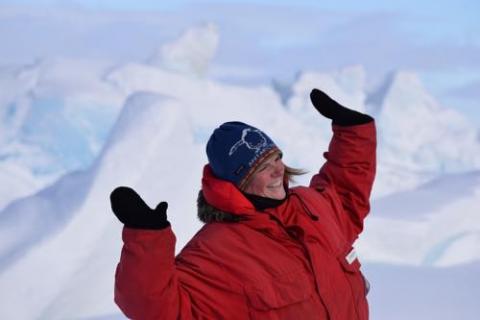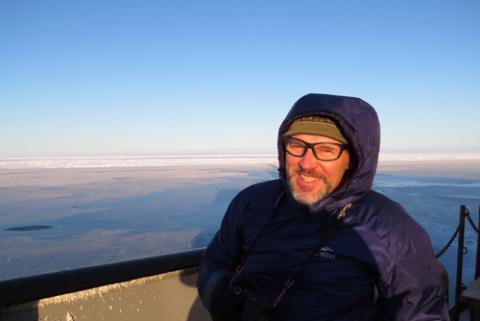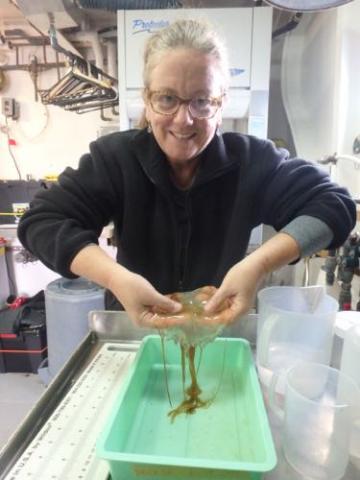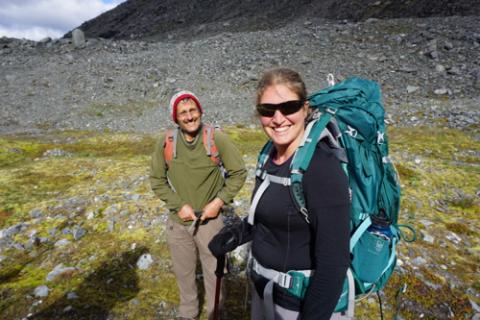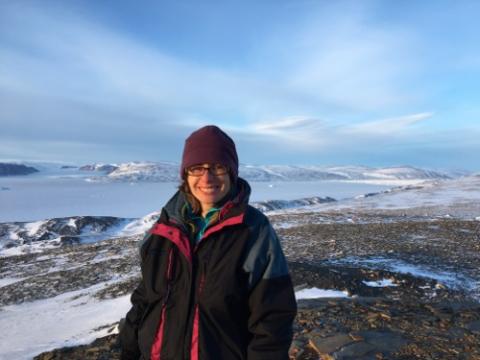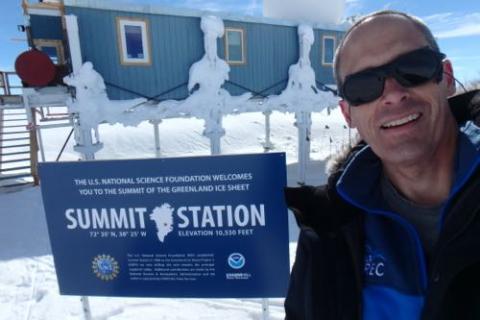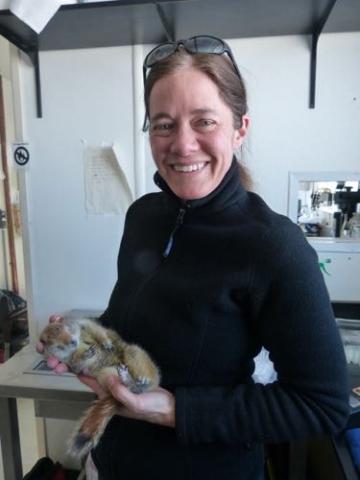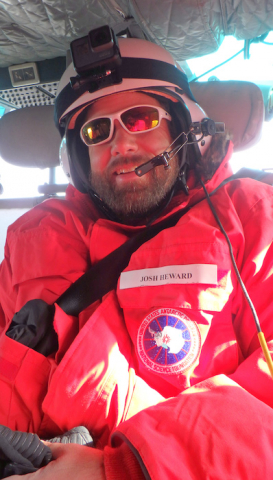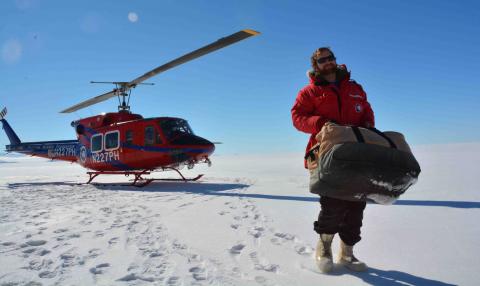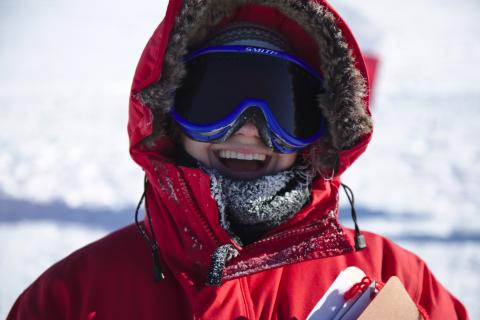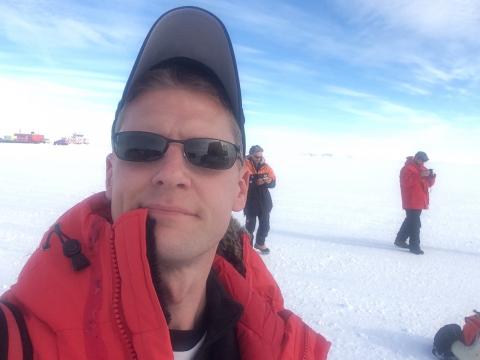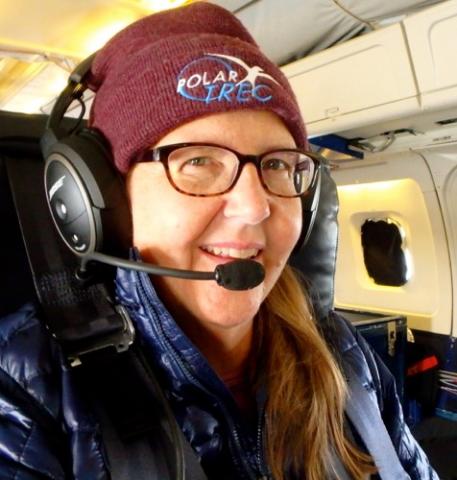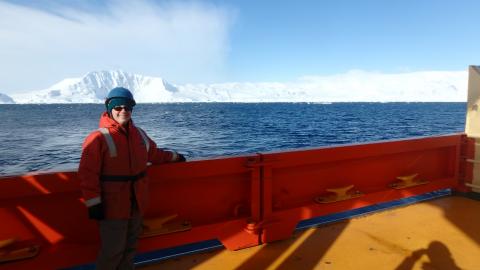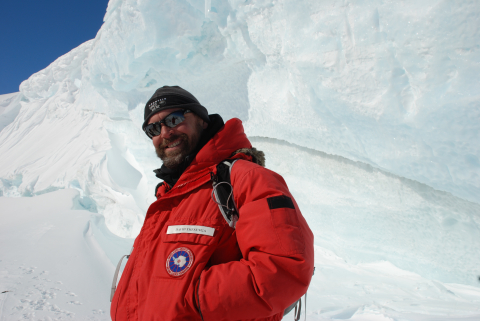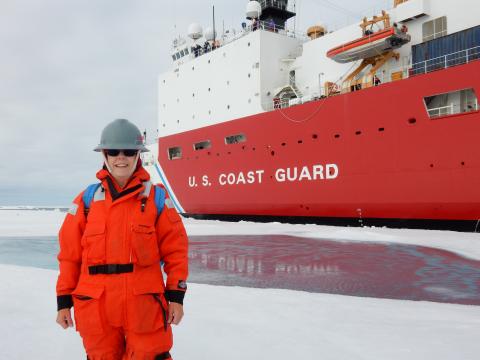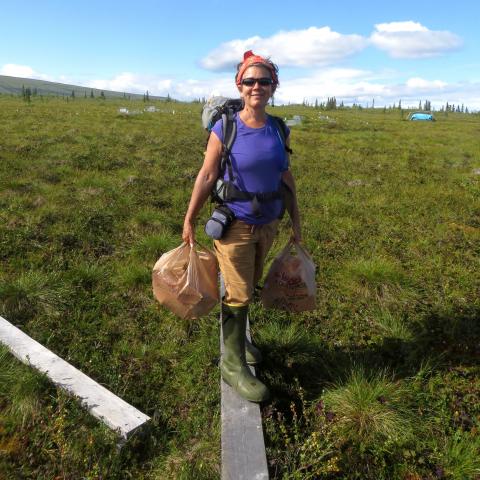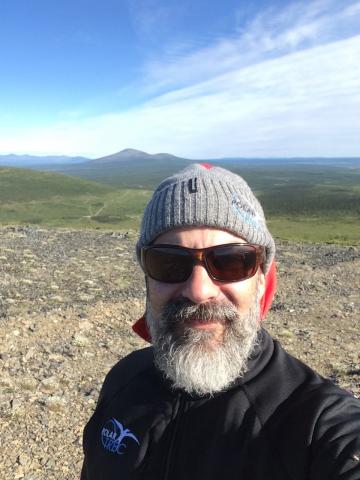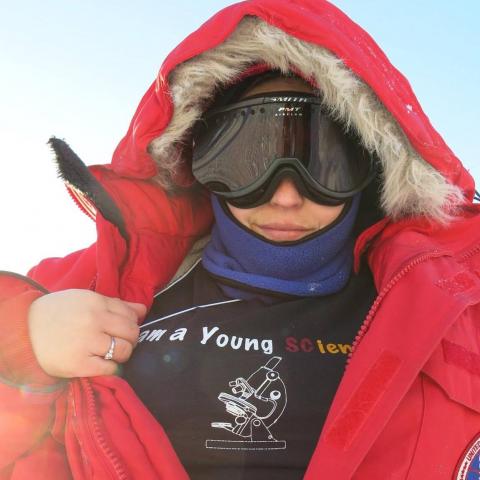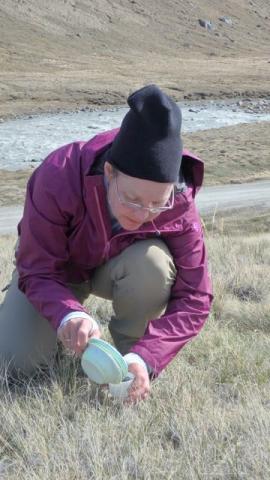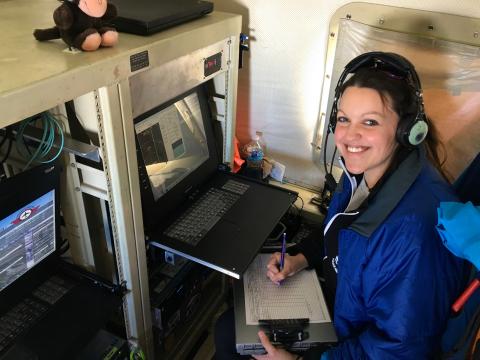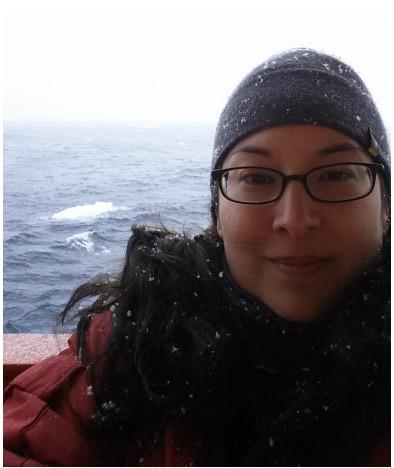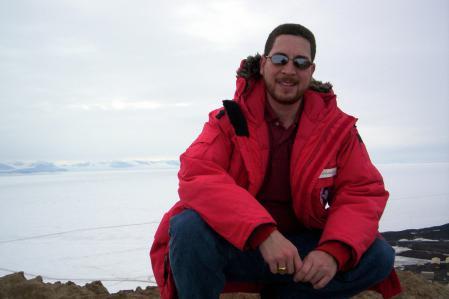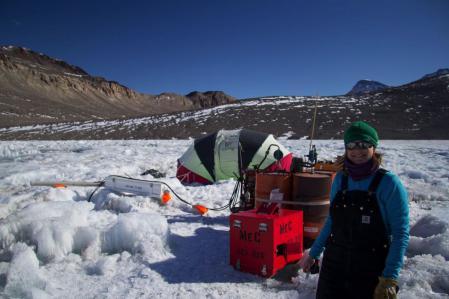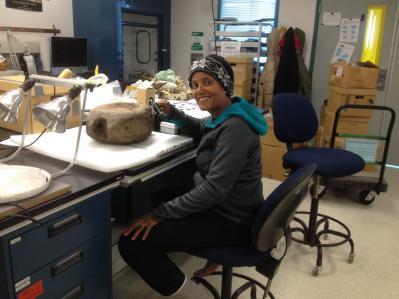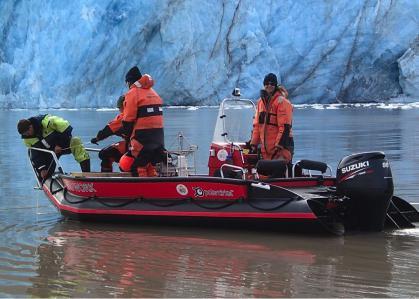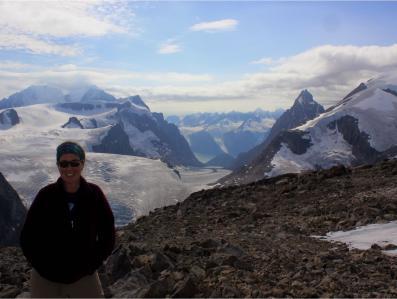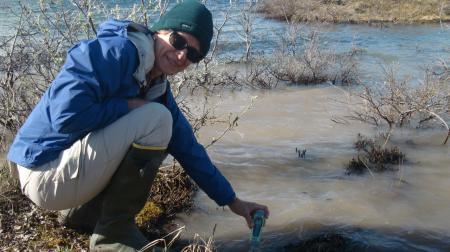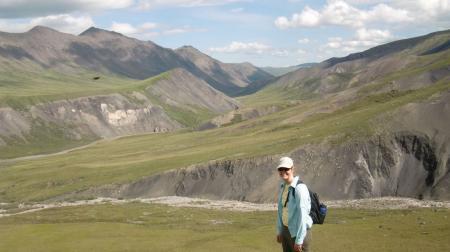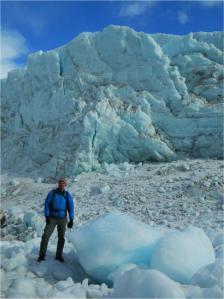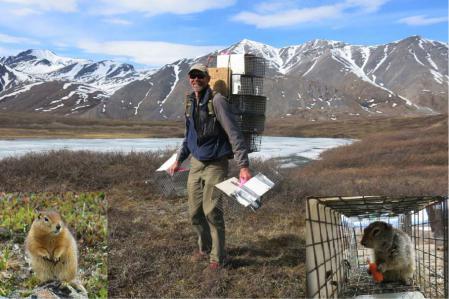As a New York City educator who is not originally from the city, I was reminded through my field communications with my students that nature in its purest form (in other words, not curated as a park might be) is not always accessible to those who live in major cities. My hope in sharing my trip is that it will provide initial access to those who yearn to connect with the natural world around them and entice those who may have never thought about doing so before.
PolarTREC has changed my students, my teaching, and my life. My students know that if they persevere, they can accomplish anything. They know what real science is, and consider themselves part of the team.
As family, friends, students and colleagues learned of my upcoming adventure, many of them said, “I had never heard of Thwaites before and now I realize they are talking about it in the news all the time!” To me, this is just one small example of the exceptionally broad impact a PolarTREC experience can have- it affects not just the educator, but their entire community- people in my community became deeply invested in my expedition and gained greater awareness of the impact of warming temperatures on the stability of Thwaites Glacier- in some cases long before I left on my journey.
My PolarTREC expedition was an exceptional experience and being paired with a researcher and seeing field research in action gave me a wealth of new ideas for how to incorporate scientific thinking into my lessons and make the science relevant to my students in engaging ways.
Not only do I get to share the incredible logistics of getting to the South Pole, but I can inspire students by showing them a different side of science they may never have considered. The IceCube Neutrino Observatory is such a unique way to apply a science degree and it is important for the next generation to know that these types of careers exist.
Working with the Growing Up on Ice team in Antarctica was an amazing experience. One of the greatest attributes I witnessed while being a member of this team was to observe how each individual's' strength was truly valued and applied optimally. It took teamwork to a level I never knew was possible. I learned such an incredible amount because of the talents that each individual brought to the team and shared. I was able to be both a field research scientist and a junior veterinarian assistant.
“As a science educator, the ability to conduct field research and learn from and talk with university professors, who are also researchers, about science, science education, and research is invaluable. PolarTREC reinvigorated my love for science education, sparked a passion for field research and outreach, and connected me to a much larger science and education community.”
My students have already begun to benefit from my involvement in PolarTREC through the implementation of my new skills and knowledge into my science curriculum. Future students will continue to benefit as the collaboration between myself and my researcher continues.
We are all connected to the Arctic, and the Arctic is influenced by all of us. Participating in MOSAiC and PolarTREC has equipped me to better understand, communicate, and teach about emerging Arctic science and climate science both now and in the future. Through this experience, I have become ever-more inspired and committed to engaging with this science and helping others to understand it within the contexts of their own lives and experiences.
In my geobiology class, I focus on how the physical world has impacted the biological world throughout geologic time. Our first unit in the course is on the geobiology of the Anthropocene, the age in geologic time defined by humans and our drastic impact on the world. I plan to turn what I’ve learned from my research experience into a critical part of this unit. Thawing permafrost and how this contributes to climate change constitute an excellent example of how physical changes are directly leading to changes in the biodiversity of the planet.
I thought we had wide-open spaces in Texas, but nothing can compare to the beauty of the tundra. The wildlife and vegetation fascinated me, and I soaked up all the information I could.
How amazing, the breadth of information one can be exposed to in a month’s time. Participating in this expedition has provided me the knowhow to take real scientific processes and sculpt them for the classroom, making learning relevant.
My PolarTREC expedition to the Dry Valleys of Antarctica was an experience of a lifetime... This was far more than a trip. It was an experience that is a life-changer. It has been a life-changer for myself, my students, my family, other educators, and other folks who I have been able to share my Antarctic experience with.
PolarTREC has been an incredible experience for me, both professionally and personally. The expedition and experience have shifted the way I teach about science in the field and how I approach this with the students. It has also reiterated the fact that I am educating my students to think critically and ask testable questions.
Never, in my 27 year career as a teacher, have I had so many students so interested and enthusiastic in so many broad and varied topics that they would have immediately dismissed as “boring” had I not participated in PolarTREC. I was happily mystified by the curiosity of the students and the depth of their interest in everything related to my expedition. Before during and after my deployment, students have been thinking and me asking questions about everything from geography and time zones to barometric pressure and glacial drift. As a teacher, this is what we strive for!
It is important we continue to expand the definition of whose “job” it is to teach about the Arctic and climate change. All K-12 educators, regardless of discipline, have a responsibility to integrate climate change education into their curriculum. Future solutions to environmental problems will come from interdisciplinary teams.
"I'm surprised at how many angles I find myself integrating into my curriculum already from this experience. It has become so much more than seabirds. It's about migration, people, change, and impacts of those changes--timeless themes within so many content areas."
"There is something truly magical about being able to follow and “travel along” with someone on a scientific expedition like this. Not only were people reading my journals and social media posts, but they were eagerly anticipating my next update. I wrote and shared about the science, day to day life in the field, the challenges our team faced, my successes, and my failures. This make shift virtual scientific community rallied behind me and the team as we continued our grueling daily treks into the mountains. I even witnessed the self-proclaimed “bad at science” individuals asking pointed questions and wanting to know more about the science and geology of our expedition and the study area."
As an exhibit developer who works on projects related to climate change in the Arctic, PolarTREC has been an invaluable resource. There is a big difference between reading about a place and seeing it, smelling it, touching it, and listening to the stories of those who live there. I am now better prepared to communicate issues specific to Arctic science and Arctic communities to audiences in the Lower 48.
My PolarTREC experience peaks interest in almost every person I meet regardless of age and gives me an opening to talk about polar science and climate change to people and groups I never imagined I would have a chance to. I am excited about the opportunity that PolarTREC has allowed me to have and will spread the science I have been exposed to at every opportunity.
My experiences in Alaska have changed me. I learned so much about what field research is. I learned that in the communities like Barrow, Alaska, science is a community effort; everyone is involved. I learned that science is a collaboration like in Toolik Field Research Station; everyone is willing to jump in and help. I learned that scientists are some of the most passionate, welcoming, and interesting people I've ever met. I'm entering my classroom this year with a trove of insights and knowledge to share with my students and community.
PolarTREC also taught me the importance of science communication. I realized that as fascinating as the science might be, if the science can’t be communicated to the general public, no one will be able to appreciate the importance of the work. As a teacher, and science communicator, I felt personally responsible for making sure I was effectively communicating the science to my students and the rest of the public by sharing my experience through journals, videos, and PolarConnect events. It has also changed my thinking in the classroom by emphasizing the importance of students being able to communicate their science. I have expanded an effort on literacy in the classroom which I think will contribute to a generation of more thoughtful and reflective scientists.
I am not sure a single day has passed since my return that I have not referenced in my teaching something I learned, participated in, saw or otherwise experienced on this journey. It could literally be something as mundane as reviewing exam questions and pointing out a graph the students had to construct that included standard error bars... I am making connections where I didn’t know I could. Students are gaining and seeing the importance of what I am teaching. It holds a new validity that wasn’t there before.
"I constantly strive to incorporate and integrate these strategies to: educate students about the relevance of science in the world, enlighten them to the STEM-based technological challenges that await them in the future, embolden them to accept these challenges, and empower them to apply their knowledge toward practical solutions of problems, both on a small scale and a large scale. I am always looking for unique and creative instructional opportunities to bring to my classroom as well as to share with other teachers. The PolarTREC experience provided me with opportunities that address all of these criteria."
I recall pondering whether or not all the money, time, and energy being put into this research cruise and others like it are really worth it. I realized that the answer is in two words: direct observation. All science is based on asking questions and using experimentation and data to come up with the best explanation we can. However, the data sets for those explanations and models needs to be collected through direct observation. Once we have a model we need to know if it actually works so again we rely on direct observation. That realization was an unexpected outcome for me.
"Teachers should engage in relevant and meaningful research. I think that research injects passion into our instruction. Our students catch on to our enthusiasm and science becomes contagious. "
"Before PolarTREC, I had many vague ideas about what I would like to do with my career. Now, I have a much clearer path, I know what specific ideas of actions I need to take, and I have many people, both teachers and scientists that will help me achieve my goals."
"Being a researcher is not comfortable; it is hard, and takes spirit and determination. Having experienced this expedition, I can talk with my students from a knowledge base that I never had before. I now know what it means to be cold in the Arctic and to see an ice cap and explain how vast it is. I can relate how the cold sinks into your core when the temperature drops below zero and the absolute quiet of being surrounded by nothing, or the noise of a glacier with its cracking and popping sounds as it moves slowly over the earth."
"Science is often viewed as a body of knowledge rather than a process. By incorporating the non-science aspects of STEM, my students will be better prepared to not just learn scientific principles, but to be able to apply them as well. This is where science education must go to make the scientists of tomorrow."
"What we know and understand about science is constantly changing as we get new information and new ways to analyze data – that is what makes it great. But with busy schedules full of teaching, planning and grading, it is difficult for teachers to find the time they need to stay current in the subjects they teach. I wanted to find a way to reinvigorate my lessons and get as excited as I used to be when I started teaching."
"In my ideal world every STEM teacher would have the opportunity to participate in a meaningful field research experience."
"PolarTREC provides such priceless opportunities, and it does so in the regions of the world that remain inaccessible to most people. For me, nine weeks in Antarctica delivered a myriad of first hand examples of science, technology, and environment to support my teaching while fueling an enthusiasm for the skills and content I pass on to my students."
"Teachers on science expeditions also become role models to students, parents, and the public at large, sharing the joy of learning for the sake of learning. It is easy to fall into a rhythm as a teacher, becoming expert in the topics required for the classes we teach. To step outside of that familiarity, we as teachers allow ourselves to enjoy being a learner again. Being transparent about a lack of expertise in a subject, the insecurities felt when learning something new, and the excitement that comes from fulfilling a curiosity can be incredibly impactful for an audience of all ages. Teachers who go on science expeditions show by example the pleasure that comes from reigniting an innate curiosity about the world (or universe) around us."
"The experience has made me a valuable resource on nuclear physics as well as polar science. I fully intend to make the most of this role and disseminate the details of my experience to students, educational professionals, and the public at large."
"The nature of science is continually moving us forward; from a fresh set of findings we rush ahead excitedly to the next batch of questions. From this continual pursuit, new ideas, methods and instruments are designed by scientists and technicians at a rapid pace, in turn yielding new data. As science teachers, we need to be part of this effort, to be inspired by it, learn from it and figure out how to share it with our students and the public."
"The PolarTREC program encourages relationships between educators and research scientists and serves as a valuable opportunity to incorporate field research techniques and current data into STEM curriculum. Exposure to different types of field work introduces students to unique ecosystems that promotes interest and increases classroom engagement. The use of polar research data encourages students to make comparisons between polar and local ecosystems and creates opportunities for them to generate connections, analyze information and draw cross-curricular conclusions. Additionally, the opportunity for educators to participate in authentic learning encourages effective lesson plan development."
This has been an experience that I will not forget for so many reasons. It was amazing to be able to return to the field as a respected and valued member of a research team. The number of experiences that I have been able to not only take back to my classroom but that have enriched my own professional development is innumerable. I look forward to continuing to work with PolarTREC to share the experiences of PolarTREC teachers and teams, my own experiences, and the power of polar sciences.
"At some point during the expedition I remember thinking, “Here I am, a teacher from a small corner of the world, teaching at an even smaller school, working alongside a team of internationally recognized scientists”. This access and these kinds of experiences are a huge benefit of allowing teachers to participate in science expeditions."
"The PolarTREC expedition places the teacher in the role of student. All aspects of the expedition ask the teacher to stretch her mind and reach beyond her comfort zone. This stretch presents itself to the teacher in having to learn new technology, new science, new presentation formats, and meet, live and collaborate with new people. During the expedition, the teacher will learn to overcome her own limitations and learn to walk through the learning process much like her own students experience back in the classroom."
"To bring my passion into the classroom, I share my past experiences, whether it’s with photos or through discussion. I believe that having my students know that I am not only able to teach their subject, but I am also actively growing my content knowledge is a powerful tool."
"I wanted to work with researchers like Dr. Crump to see for myself the impacts of climate change on the Arctic so that I can better explain this science to my students. I think it’s important as a STEM (Science Technology Engineering and Math) educator to know what science is currently happening in our world so that the content that is provided to students is relevant for their future careers in STEM."
"This, in fact, was one of my goals from the beginning: to show others that when we step off the beaten path, we discover that the world is a bigger and more interesting place than we ever dreamed! I wanted to bring a greater sense of possibility and adventure to my classroom."
"Each day was more exciting and beautiful and impactful than the last and my heart and soul were full as I experienced the true and pure beauty of our Earth and became a part of a crew who was capturing that beauty and the important information hidden within to build a continuous record of our changing planet. This experience was transformational not only as a classroom teacher, but as an individual and steward of our Earth and on a truly personal level."
"As part of a polar science expedition, teachers can provide outreach and an interpretation of the groundbreaking research happening in critical areas of the planet, acting as a liaison between scientists and students. Teachers can embody an important human interest aspect to science. As someone “new” to the research expedition, students and the public can easily connect with teachers as they explore the expedition together. This connection helps draw students and the public into the research, inciting interest in the science by framing facts and data in an intriguing and easily accessible story. "
"All educators interested in STEM education and bringing real world science into the classroom should have the opportunity to participate in real time scientific exploration. Teachers need to be able to excite learners about science and that excitement does not come from a book, but from hands on, interactive instruction. Through the support of a national initiative in funding STEM education experiences like PolarTREC allow educators to experience first hand what it takes to develop and then implement a research plan."
"Interest in STEM learning is very evident— especially in the 12 to 18 age group—but the opportunities are limited. So, from the beginning I saw my participation in a PolarTREC expedition as an opportunity to bring new opportunities to the people in specific STEM areas such as polar science and high energy astronomy. Upon arriving in Antarctica I immediately understood that there is simply no substitute to actually traveling to the field, living and working there. So, about 90% of what I now know was new, practical knowledge acquired through my PolarTREC expedition."
"It was a tremendous opportunity for me to do science in a way I never have before. Even more so than that, though, the experiences helped me find what I can become as a science teacher. Being immersed in a research experience like this has opened my eyes to what a depth of knowledge can bring to my teaching. I plan to spend the next phase of my teaching career integrating new discoveries, innovations, and enthusiasm into my classroom. The amount of knowledge and experience I gained by being a part of this expedition is immeasurable, and reflects even more than what I thought I would learn."
"I believe that opportunity leads to exploration, exploration leads to discovery, and science is all about discovery. The most important asset a teacher can give their students is to instill a love of science through exploration and discovery. It’s hard to instill exploration, passion, and discovery when you haven’t experienced it first hand. Teachers need to go on science expeditions so that they can lead by example and experience the exploration, passion, and discovery they want their students to embrace. Teachers with real life experiences are role models who engage and inspire by weaving their experiences and discoveries through the classroom science activities."
"Science is my passion. I love to teach and share science and my students get excited with me as a result. My participation in “High Arctic Change 2014” heightened this excitement. Science became a little more real for my students because they knew someone (me!) who was actually going out and participating in real science research. My experiences in the Arctic now infuse my lessons. Instead of learning about isotopes out of context, students can share in Jessica’s experience in the Arctic. Jessica, an undergraduate student with us, is only five years older than my middle school students."
"Teachers that choose to be part of field research are seeking out the opportunity to further their own understanding of the area of research. They are naturally going to ask probing questions and fully embrace the experience. Most teachers love to share new knowledge that they have gained and more likely than not; during and after the expedition, teachers will devote time to craft ways in which to share their experiences with larger community."
"My field experience adds to my science teaching in four primary ways. Students need to know how to make and record accurate data collections; Students need to be able to work collaboratively; Students need to be open to learning new things and working outside of their discipline; students need to understand the impacts of climate change. Enhancing the lessons, especially climate change lessons, with my experiences from the field, brings added depth and understanding to learning."
"I feel a teacher should always be pushing the boundaries of the classroom walls. Educators often integrate their personal experiences into their classrooms and lessons, even a trip to the grocery store, or museum make it into illustrative examples or as a jumping off point for a new way to approach a lesson. This is where the importance of involving a teacher in a research expedition that will not only stimulate their own personal growth, but has a distinct link to their classroom will provide them with many lesson ideas, and personal illustrative examples."
"I can spend my entire career teaching students how to become scientists but until I see firsthand what scientists actually do I’ll be teaching from a relative void. It needs to be relevant and concrete for me before I can do the teaching justice. Going on a PolarTREC expedition shows a teacher what knowledge and skills a scientist needs. We learn to do what they do and how they do it. We learn to become better communicators through our stories, journals, photos, and videos that paint a picture for the students and families back home. We learn valuable field skills that we can pass on to our students with creative lessons."
"Participation in authentic research can be a great way to stay current in the practice of science and to be a part of the new discoveries. It is also a great way to serve as a role model for students by showing that their teacher is intimately involved in the practice of science. This helps the classroom teacher’s authenticity by giving actual research experience. This personal experience builds teacher confidence and expertise in the content. It also reminds us why we chose science careers in the first place."

